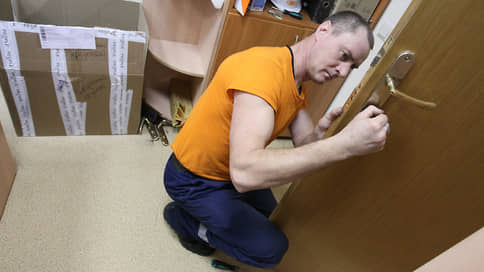The owners were left with the right to break – Newspaper Kommersant No. 57 (7502) dated 04/04/2023
[ad_1]

The Constitutional Court (CC) clarified the relationship between owners and tenants, explaining when the owner’s unauthorized entry into the premises belonging to him should be considered illegal. Any irremovable doubts about the owner’s right to access his premises should be interpreted in favor of the owner, insists the Constitutional Court. The expert says that this will help the courts to sort out disputes between owners and tenants, which often turn into a criminal plane.
Unauthorized entry of the owner into the housing he rented cannot be automatically equated with illegal, the Constitutional Court explained. In each specific case, the courts should clarify the circumstances of the case, including whether the owner of the premises has grounds for appearing there. This is stated in the decision published on the website of the court (.pdf) on the complaint of a resident of the Volgograd region Valery Velikanov, who challenged the provisions of Art. 158 of the Criminal Code and Art. 17 of the Criminal Procedure Code, to the extent that they allow a visit to one’s own household to be regarded as an illegal entry into the premises.
In 2021, Mr. Velikanov was convicted of murder (Article 105 of the Criminal Code) and theft (Part 2 of Article 158 of the Criminal Code) to eight years and three months in prison. However, the applicant believes that he should not have been prosecuted for the theft, since, taking into account the value of the stolen goods, there was only an administrative offense. The hairdressing salon, whose doors he broke into, was located on the territory of his own house, and he did not officially lease the premises. And the microwave oven stolen from there cost only 2.1 thousand rubles, so it should have been petty theft (Article 7.27 of the Code of Administrative Offenses), the author of the complaint believes. But taking into account such a qualifying feature as “illegal entry”, the court regarded the defendant’s actions as a criminal offense. Valery Velikanov did not agree with this approach: he insisted that he could not be charged with illegal entry into his own premises.
According to the applicant, such law enforcement practice calls into question his constitutional right to private property, that is, the right to own property, own, use and dispose of it.
However, the Constitutional Court, having studied the materials of the case, did not agree with it: in the case of a theft with illegal entry, the qualifying signs are both the illegal purpose of entry (to steal someone else’s property) and the perpetrator’s lack of the right to access the premises, the court’s decision emphasizes. But these signs must be established by the court and reflected in the verdict in a particular criminal case. That is, in each specific case, the court must find out whether the owner’s right to access the premises was limited and, if so, what this restriction was. Unremovable doubts about this should be interpreted in favor of the owner, insists the Constitutional Court. Indeed, in itself, the transfer of property under a contract for use, as a rule, does not deprive its owner of the right to control the transferred property, the court recalled. In addition, the occurrence of emergencies that threaten the legitimate interests of the owner is not ruled out: accidents, fires, etc., and they may also require immediate, albeit not provided for by agreement of the parties, access to the interior of the respective facility. Such access in itself cannot be considered as unlawful, the resolution notes.
The applicant’s case should be reviewed, precisely because in his case the Volgograd Regional Court did not bother to ascertain whether Mr Velikanov had legitimate grounds for being in his house.
However, the Constitutional Court noted that earlier decisions may be upheld if it turns out that there were no such grounds. At the same time, it does not matter whether the transfer of property was formalized, it is specified in the resolution. Otherwise, a citizen who entered into an agreement on the transfer of an object for rent, and then robbed the tenant, would be in a worse position than the one who acted unofficially.
Dmitry Gorbunov, a partner at the law firm Rustam Kurmaev & Partners, believes that now it will be easier for the courts to resolve the complexities of qualification in such cases – and cases when the relationship between the owner and the tenant go into the plane of criminal law are not so rare, the expert notes: “This often happens simply for the reason that the tenant does not let the landlord back or does not allow to control the fulfillment of the terms of the agreements in financial terms and on the number of residents. As a defensive reaction, tenants use appeals to law enforcement agencies.”
[ad_2]
Source link








